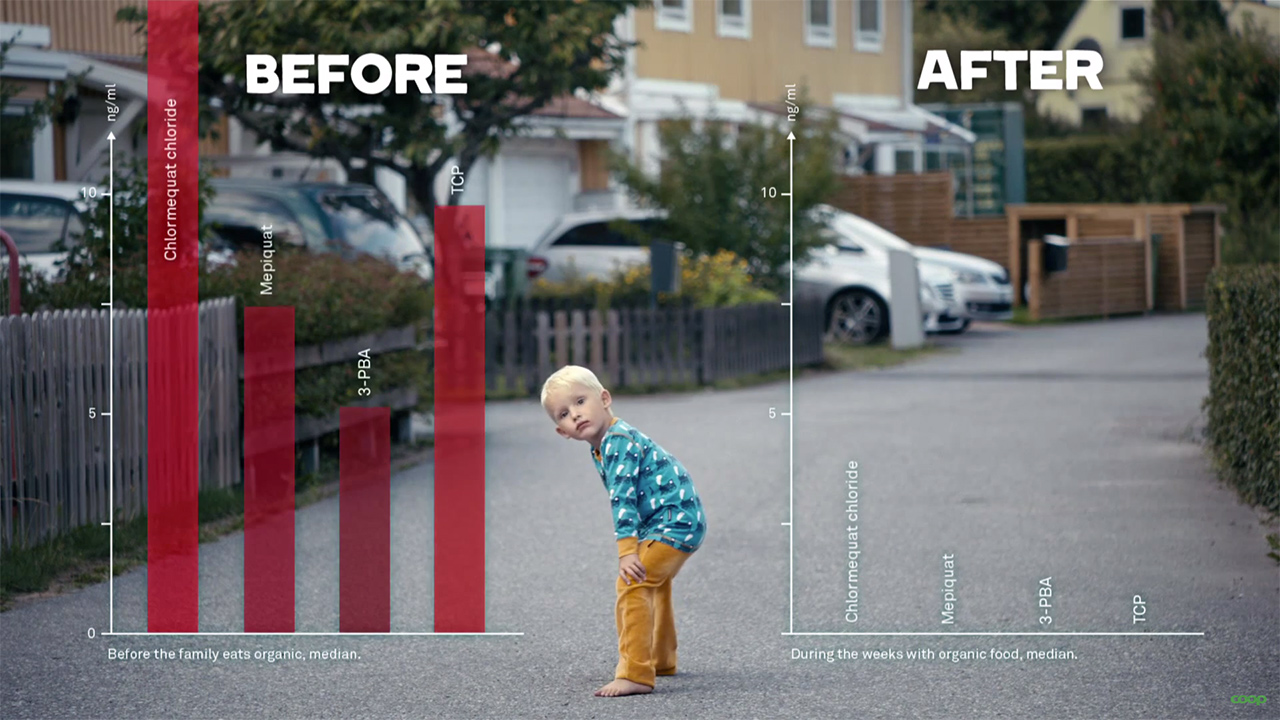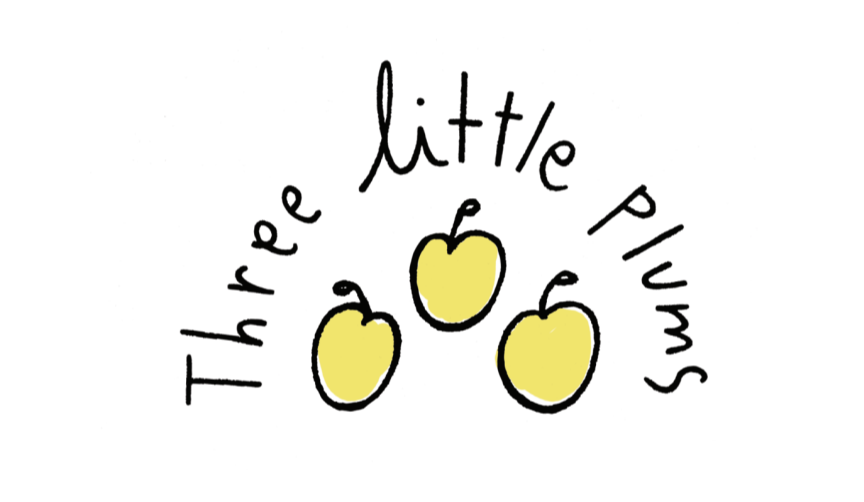THE ORGANIC EFFECT: What Happens When a Family That Doesn’t Eat Organic Food Suddenly Starts Eating Organic?

A lot has been written about how beneficial, or not, buying organic food for your family is. After watching this video, it is hard to deny that conventional food is exposing you and your family to pesticides.
The Swedish Environmental Research Institute IVL was commissioned by the Swedish supermaket chain COOP (who sells mostly conventional foods but also offers organic products) to find out exactly what happens when you switch from eating conventional food to a 100% organic diet.
The family of 5 that was chosen cannot afford to eat an organic diet. The researchers provided 2 weeks worth of organic food and measured their pesticide levels before and after. The result? Watch this 90 second video - because they are truly incredible.
THE STUDY AND ITS RESULTS
After watching the video you will be able to see the drastic drop in pesticide levels in every member of the family. There is no denying that food is one route of exposure to some really bad pesticides. This is particularly true for children who eat and breath more in relation to their body weight and thus, have higher concentrations of any given chemicals in their body after similar exposure rates than the adults.
If you live in the United States, the pesticides you are being exposed to are even more worrisome, since the US allows pesticides to be used that are banned in Europe (for more on this read our post IF A PRODUCT "MIGHT" CAUSE CANCER - WOULD YOU FEED IT TO YOUR KIDS WHILE WAITING FOR MORE DEFINITE STUDIES? ).
Although the highest levels of pesticides (when the family was eating a conventional / non organic diet) are still lower than the European Union's " acceptable daily intake" - as the scientist in the video mentions, there is no method for calculating the effect of multiple chemicals simultaneously over a long period of time (the combination effect ).
Eating organic foods reduces the levels of a number of chemicals and substances that we are exposed to through what we eat. This in turn, reduces the risk of a long-term impact and combination effects they could potentially have on our health.
NOT JUST FOOD
Interestingly enough, the study took into account that other household products such as personal hygiene products, detergents, and new clothing may contain ingredients which break down into a pesticides. Consequently, laundry detergents were changed during the organic weeks. Additionally, the family was also asked not to wear newly purchased clothing, bedding, or towels and use "environmentally friendly" personal hygiene products such as shampoo, conditioner, and skin care products during the experiment.
WHY ARE PESTICIDES BAD FOR US?
By design, pesticides are meant to kill living things. It makes sense (and there are years of research that show) that pesticides not only kill bugs and fungi in crops, but that they can do damage to human beings, especially children and pregnant women. Pesticides are linked to health problems including:
Cancer
Hormone Disruption
Abnormal brain and nervous system development
Even the American Academy of Pediatrics has pointed to science linking pesticide exposure to a range of childhood health issues including reduced birth weight, ADHD and impaired mental development.
CONCLUSION
As I mentioned, no approved method exist to study the effect of multiple chemicals simultaneously, i.e. the possibility that chemicals interact with one another to give a stronger or weaker effect than they would have individually. However, the report says it best:
"Given how little we currently know about the combination effects of all the different chemical substances that people are exposed to in their day-to-day lives, it may be wise to apply a principle of caution in this regard."
This study clearly shows that one effective way of reducing your family's chemical exposure is bychoosing organic food. Choosing organic foods not only reduces the levels of a number of pesticides that we are exposed to through what we eat, but also reduces the risk of a long-term impact and combination effects.
This is not the first time a study of this type has been conducted. The American Academy of Pediatrics published a study titled "Organic Foods: Health and Environmental Advantages and Disadvantages" in 2012 . In it it talks about one study where children switched to an organic diet for 5 days, after which the levels of pesticides in their bodies dropped to almost undectectible levels.

